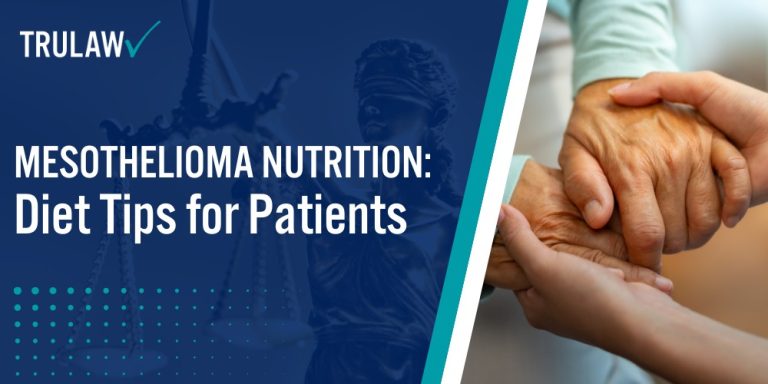Proper nutrition plays a vital role in helping patients fight cancer and maintain strength during mesothelioma treatment.
The right combination of healthy foods can provide essential nutrients that support healing, boost immune function, and help manage treatment side effects.
Nutrient-Rich Foods for Optimal Healing
Following the healthy eating plate guidelines from Harvard School of Public Health can help mesothelioma patients maintain proper nutrition during treatment.
However, individual needs may vary based on specific symptoms and treatment protocols.
Here are key nutrient-rich foods that may benefit recovery:
- Protein Sources: Lean meats, fish, eggs, and legumes help rebuild tissue and maintain muscle mass
- Omega-3 Rich Fish: Salmon, sardines, and herring can reduce inflammation and support heart health
- Fiber-Rich Foods: Vegetables, fruits, and beans help regulate blood sugar and support digestive health
- Antioxidant Foods: Green tea, berries, and leafy greens may help protect cells from damage
These foods provide essential nutrients that can help strengthen the immune system and support the body’s natural healing processes.
However, patients should always consult their healthcare team before making dietary changes.
How Proper Nutrition Can Aid Recovery for Cancer Patients
For patients with lung cancer and other forms of mesothelioma, maintaining proper nutrition can be challenging due to treatment side effects.
Adapting food choices based on symptoms can help ensure adequate nutrient intake.
Consider these dietary adjustments based on symptoms:
- Nausea: Choose cold foods like smoothies and sandwiches instead of hot foods with strong aromas
- Mouth Sores: Avoid spicy foods and acidic items that may cause irritation
- Taste Changes: Use plastic utensils if food tastes metallic
- Poor Appetite: Eat smaller, more frequent meals throughout the day
Making these adjustments can help patients maintain adequate nutrition while managing treatment side effects.
Working with a registered dietitian can provide personalized guidance for optimal nutritional support during recovery.



